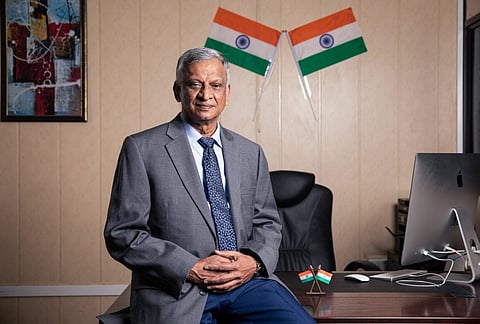

The integration of traditional learning with digital innovations has revolutionised education, driven by the continuous need to upskill to remain relevant in an evolving industry.
Over the past decade, the business landscape has been distinctly divided into two eras — pre- and post-pandemic — necessitating technological advancements and greater inclusivity to keep pace with the rapid disruptions reshaping the global business ecosystem.
The need for professionals to upskill with critical new-age and tech-driven competencies has witnessed a sea-change. Upskilling not only redefines career trajectories but also influences strategic career decision-making, enhances professional expertise and ensures alignment with the latest industry developments.
These career development skills are no longer a luxury or an optional exercise for professionals seeking career progression, rather they have become an essential mandate for organisations striving for growth and sustainability.
This evolution became particularly evident in the wake of the pandemic, when institutions swiftly transitioned to online learning and employees adapted to remote work while maintaining productivity and meeting business objectives.
Blended models have now become the standard across various sectors, especially in higher education and executive learning, where they offer flexibility and accessibility to learners. These models provide a distinct advantage over traditional classroom methods by fostering critical thinking and decision-making skills, ensuring that learners remain competitive despite external constraints.
The early 21st-century’s digital transformation has enabled various edtech platforms to collaborate with centres of excellence, transcending geographical, economic and time-related barriers to reach a broader professional audience.
When implemented effectively, blended courses offer high levels of personalisation and flexibility along with supporting asynchronous learning formats that cater to diverse learner needs, enhancing the overall learning experience.
This form of learning addresses key challenges related to accessibility and affordability, offering a structured learning experience through prestigious institutions like IIM Amritsar.
The institution’s Executive MBA (EMBA), a hybrid learning solution programme in collaboration with TimesPro has garnered significant popularity among professionals across sectors. Designed to accommodate diverse learning styles, the programme caters to the bespoke needs of professionals, providing them with a distinct competitive edge in the rapidly changing business ecosystem.
These professionals not only gain the skills to tackle real-time business challenges but also build lasting professional networks that serve as valuable support systems.
Blended EMBAs like these benefits learners aiming to transition into leadership roles or reinvent their strategic acumen, whether in multinational corporations, private enterprises, public sector units, government departments, MSMEs or family businesses. Additionally, several institutions like Indian Institutes of Technology (IITs) and Indian Institutes of Management (IIMs) extend alumni status to learners, granting them access to the same benefits as their full-time counterparts — a critical advantage for long-term professional growth and networking.
The knowledge exchanged in such programmes, delivered in an online mode, mirrors classroom-based learning while offering the convenience of self-paced study while providing pedagogical experiences of game-based learning that can closely mirror real business situations.
Professionals can also progress at their own pace, revisit recorded sessions when needed and resolve doubts through online mentors, chatbots and dedicated support systems.
Moreover, learners benefit from interactive online classrooms and on-campus immersion sessions, where they engage in face-to-face discussions, experiential learning and networking opportunities.
Blended EMBA programmes bridge the gap between industry requirements and academic interventions, enabling mid-career and senior professionals to reskill or upskill in line with evolving industry dynamics. By embracing such learning models, professionals’ future-proof their careers, ensuring continued relevance and adaptability.
The fusion of technology with executive education not only enhances individual career prospects but also drives innovation, fosters leadership and contributes to the transformation of industries on a global scale.
(Prof Nagarajan Ramamoorthy is the Director of IIM Amritsar. Views expressed are his own.)
